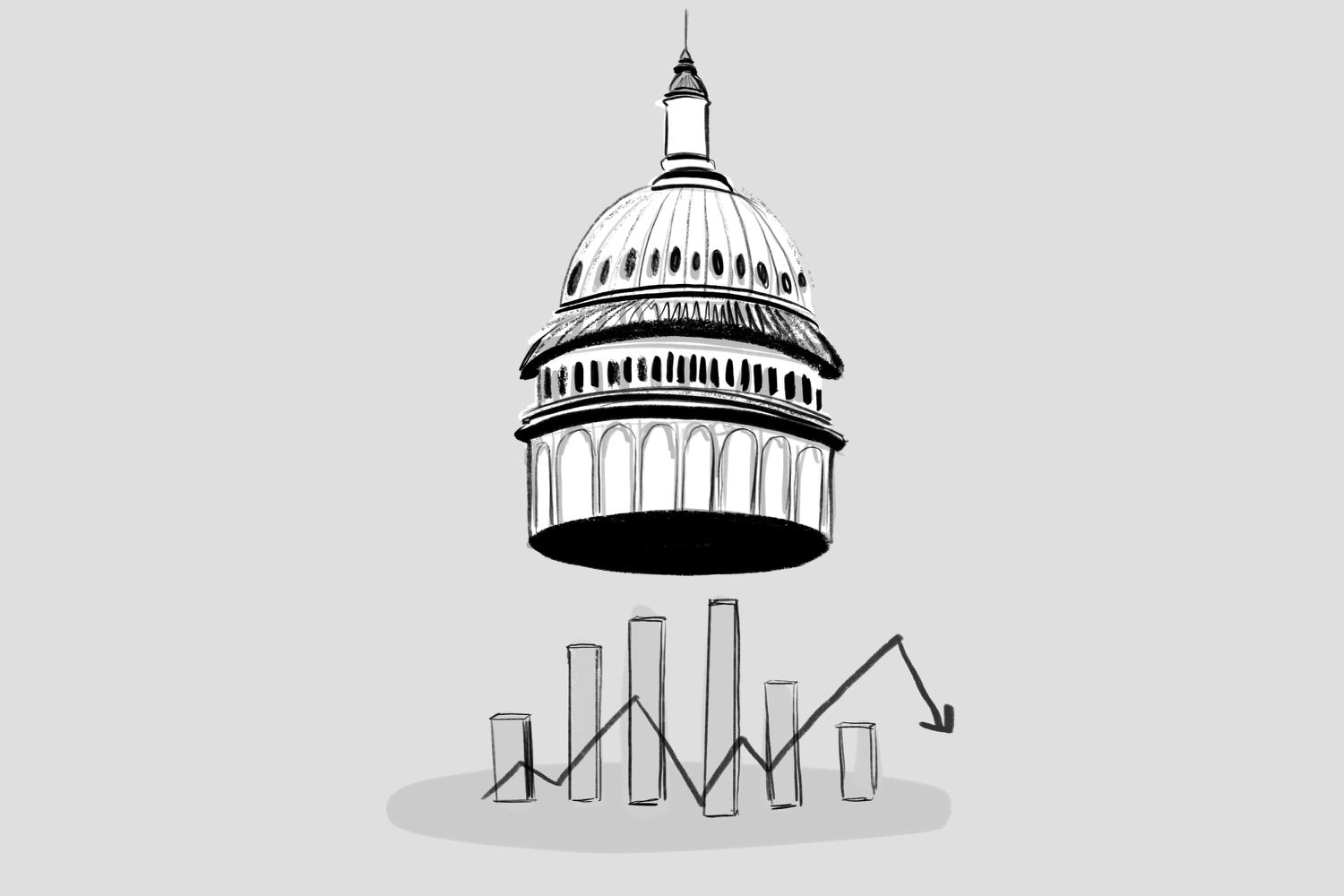Online casino gambling has seen a major transformation in the United States in the past few decades. It has emerged as a strong industry with significant growth rates.
The regulation of online casino gambling in the United States was indeed a challenging, and arduous process. It was shaped by technological advancements, changing societal attitudes, and evolving legal frameworks.
This has been the story from unregulated online platforms of some years ago up to the time of state-by-state legislation, and the regulation spread to more than one region. The road toward all-embracing regulation has been marked by significant milestones and the debate is still going on.
In the wake of such a dynamic, the rise of legal gambling-related innovative project Jackpot Sounds will keep the fun and involvement while at the same time observing the strict standards for fairness and safety.
Several states have already gone as far as legalizing and regulating online casino gambling, they also have found that they will get significant revenues from taxes and the economy of the county will be boosted.
And while this is happening, the focus is still on the making of strong regulatory bodies that will not only address consumer protection but at the same time promote responsible gambling practices, and at the same time encourage marketing.
Timeline of US Online Gambling Legislation History
1990s: Early Days of Online Gambling
- 1994: The Free Trade & Processing Zone Act is passed in Antigua and Barbuda, leading to the first online gambling licenses being issued.
- 1996: The first online poker site, Planet Poker, launches.
Early 2000s: Initial Legislative Efforts
- 2000: The federal government targets online gambling companies, focusing on credit card transactions related to online betting.
- 2002: In a landmark case, “Jay Cohen vs. United States,” the court upholds the Wire Act’s application to online sports betting, but leaves ambiguity regarding other forms of online gambling.
2006: UIGEA and Its Aftermath
- 2006: The Unlawful Internet Gambling Enforcement Act (UIGEA) is enacted, prohibiting financial institutions from processing transactions related to illegal online gambling. This effectively forces many online gambling operators to exit the US market.
- 2007: The first prosecutions under UIGEA begin, targeting payment processors and gambling websites.
2011: Department of Justice Clarification
- April 2011: “Black Friday” – The Department of Justice indicts major online poker sites (PokerStars, Full Tilt Poker, and Absolute Poker), leading to the shutdown of these sites in the US.
- December 2011: The Department of Justice reinterprets the Wire Act, stating it only applies to sports betting, opening the door for states to legalize online casino games and poker.
2013–2014: State-Level Legalization Begins
- 2013: Nevada, Delaware, and New Jersey become the first states to legalize online poker and casino games.
- Nevada: Launches online poker in April 2013.
- Delaware: Launches full-scale online gambling (casino games and poker) in October 2013.
- New Jersey: Launches full-scale online gambling in November 2013.
2015–2018: Expansion and Challenges
- 2015: Several states, including Pennsylvania and California, introduce but do not pass online gambling legislation.
- 2017: Pennsylvania becomes the fourth state to legalize online gambling, including poker, casino games, and lotteries.
- 2018: The US Supreme Court strikes down the Professional and Amateur Sports Protection Act (PASPA), allowing states to legalize sports betting, further fueling the push for online gambling legislation.
2019–Present: Rapid Growth and Adoption
- 2019: Several states introduce and pass online gambling legislation:
- West Virginia: Legalizes online casinos and poker.
- Michigan: Legalizes online casinos, poker, and sports betting in December.
- 2020: Michigan launches online gambling in January 2021.
- 2021: More states, including Connecticut and West Virginia, launch online gambling platforms.
- 2022: New York legalizes online sports betting, becoming one of the largest markets in the US.
- 2023: Several states continue to explore and introduce online gambling legislation, with varying degrees of success.
Projects like Jackpot Sounds become popular in online casinos, enhancing the player experience by providing auditory cues for wins and milestones. These innovations highlight the need for clear regulatory standards to ensure fair play and consumer protection.
Current Landscape and Future Prospects
- Present Day: Online gambling is legal and operational in several states, with more states considering legislation. The focus remains on creating robust regulatory frameworks that balance consumer protection, responsible gambling practices, and market growth.
- Future: The landscape of online gambling in the US is expected to continue evolving, with more states likely to legalize and regulate online gambling in response to consumer demand and the potential for significant tax revenues.
Strong Internet Revolution Beginning in the 90s
Emerging at the turn of the century, the connected era rolled out the red carpet for online casino gambling.
It is worth noting that it was at this time that gambling online was first legalized, as the first online casino started in the middle of the 1990s, with giants such as Microgaming and CryptoLogic, among others.
InterCasino, which was the first genuine money casino that was established in 1996, was one of the most successful online casinos among the first ones.
Unsurprisingly, this trend of the industry attracted more and more gamers worldwide, leading to an exponential growth of the industry.
Brief Glimpse of Government Regulation
Legal systems are in place to ensure that the relationship between the players and the operators is harmonious, yet the United States government was initially very slow to react to the emergence of online casinos.
In 1998, the Internet Gambling Prohibition Act was introduced in the House of Representatives but failed to make it law. This period was a time with basically no regulation at all, and this favored online gambling companies and brought them profits that were only growing year by year.
The Unlawful Internet Gambling Enforcement Act (UIGEA) of 2006
The Unlawful Internet Gambling Enforcement Act (UIGEA) of 2006 is a federal statute that prohibits the acceptance of payments for illegal online gambling operations. This law was created to prevent the use of financial institutions in the United States from spending money on legal online gambling.
The UIGEA did not ban online gambling but effectively restricted the processing of the money in question. Given the speed with which online gaming has proliferated, the law should adapt to the industry.
Background and Passage
A significant turning point came in 2006 with the passage of the UIGEA. The UIGEA, signed into law by President George W. Bush on October 13, 2006, aimed to curb online gambling by prohibiting financial institutions from processing transactions related to online gaming.
The Act did not explicitly ban online gambling but made it challenging for operators to conduct business in the US.
Impact on the Industry
The UIGEA led to the withdrawal of many online casinos from the US market. Major companies like PartyGaming and 888 Holdings exited the market to comply with the new regulations.
However, some operators, often based offshore, continued to serve US customers, creating a grey market.
The Black Friday Crackdown of 2011
The Department of Justice’s unprecedented crackdown on online poker sites, known as the Black Friday Crackdown in 2011, resulted in the suspension of online poker operations and the indictments of the key site operators.
Shutdowns happened because of the claiming of the wrong motive of online poker to draw a brisk gain by the government.
The online poker gaming platforms in the United States were shut down on April 15, 2011.
That day affected the customers of Full Tilt Poker, PokerStars, and Cereus. These sites were known as some of the largest brands in the industry.
Events Leading to Black Friday
On April 15, 2011, known as “Black Friday” in the online gambling community, the Department of Justice unsealed indictments against major online poker sites including PokerStars, Full Tilt Poker, and Absolute Poker. The charges included bank fraud, money laundering, and illegal gambling offenses.
Aftermath and Industry Shake-up
Black Friday had a significant impact on the online gambling industry. Full Tilt Poker and Absolute Poker faced severe financial difficulties, while PokerStars managed to settle with the Department of Justice and eventually re-enter the US market in regulated states.
This crackdown underscored the need for a clear regulatory framework for online gambling in the US.
State-by-State Legalization and Regulation
The scenario in the country of the United States in online gambling is created by a dozen or so regulations, in which one state has every right to take different ways of demand-making and regulating.
Opposite to numerous countries that are members of the online gambling regulation national system, the USA has made a big step bit-by-bit considerably. The method is based on a state-by-state model that reflects the unique political, economic, and cultural contexts of each state.
The fact that everything was done at the state level started right after the Department of Justice decided to say that the Wire Act, which is their main act, has prohibitions on betting on sports.
This opened the floodgates, so to speak, for the states that wanted to try and create their regulatory schemes for casino games and poker. Nevada, Delaware, and New Jersey were the first to take it, and each of them made their regulation and went online gaming by 2013
Each state’s road to legalization and regulation offers a different kind of landscape that takes new shapes all the time. Pennsylvania, Michigan, and West Virginia, for instance, are copying the pioneer states’ steps.
Each state individually has issued tailored regulations that meet the specific needs and priorities of the state.
This gradual method of states will give them the chance to try different models, exchange with other states about the best practices and challenges, and adapt to changing technological and market conditions.
New Jersey Leads the Way
As per recent trends, the State of New Jersey happens to be the first state that took a bold step towards legalizing and regulating Online Casino Gambling much to the astonishment and skeptical looks of other states.
On February 26, 2013, then-Governor Chris Christie went ahead and signed into law the ultimate approval of the online casino gambling bill for clear reasons hereby making the State of New Jersey the third and last state in the United States to approve online gambling-only after the first casino state to have laws that regulate such practices the state of Nevada and the second state comprising Delaware.
New Jersey, as shown above, has had a much more robust landscape for regulating online gaming industries in its practical approach through the formation of other groups of online gaming contracts, and strict licensing requirements for online gaming sites. These have all been accomplished by keeping security checks on the consumer transaction to shield their rights.
Expansion to Other States
The legalization of online gambling by New Jersey has set a precedent, leading to a domino effect wherein several other states have taken steps toward legalizing and regulating online gambling.
The subsequent states to legalize online gambling following this trend include Pennsylvania which implemented its laws in the year 2017 and Michigan moved to follow in 2019.
This snowballing effect has led to a situation where there are currently more than a dozen states in the United States that have all legalized some form of online gaming each with different interpretations or market conditions because every state mentioned here represented a different characteristic when it comes to online gaming.
When considering legal provisions applicable to different states it is been found that there are several differences in certain aspects.
Statistics and Market Growth
The enormous amount of money and the huge level of activities associated with the present evolution in the legal online casino industry are such that the role of a pioneer is both irresistible and of utmost influence in the lives of all individuals, companies, and the state in general.
According to the recent statistics provided by the New Jersey Division of Gaming Enforcement, Garden State experienced a 101.6% rise in online gaming revenues in 2020, with the overall earnings soaring to $970.3 million in revenue generation.
Federal Attempts at Regulation
The Wire Act Interpretation
The 1961 Wire Act was initially created with the intent to stop organized crime, but with the growth of internet gambling, the Wire Act has become a major area of dispute for government officials.
In 2011, DOJ made a formal interpretation of the bill, stating that the Wire Act was related to the prohibition of wagering through interstate wire communication thus excluding all other game of chances allowing US states to adopt relatively independent regulations.
Attempts to Revise Federal Law
In the span of over two decades, several measures have been taken with the hope of revising federal law as it pertains to online gaming. Congressman Peter King put forward a bill known as the Internet Gambling Regulation, Consumer Protection, and Enforcement Act of 2013.
The legislation was aimed at establishing a framework of laws for internet gambling at the federal level. However, even though the bill held a lot of desirable features and particulars, it was not backed by Congress, therefore it ended up dying away without much attention.
The Role of Technology and Consumer Protection
He referred to the influence technology has brought to the gambling industry in terms of the change it has caused, and the way the games are played, regulated, and experienced by the customers.
Simply put, the growth of online casino technology has seen its evolution with the help of technical improvements that have generated innovative opportunities and obstacles that have to be addressed in the form of consumer protection rules.
Digital technology has made radical changes in the kind of gambling now operated online with the result that they have become a lot more fun and easily within reach. The introduction of live dealer games, as well as virtual reality and interactive of the highest quality, not only has attracted users to be engaged but also increased satisfaction for them.
On top of this, state-of-the-art algorithms and the analysis of data have led to a new level of personalization, allowing the confirmation of the existence of factors in this industry such as the development of marketing strategies effectively, and the provision of cutting-edge customer service.
The accelerating pace of technology is also responsible for the occurrence of some big problems related to consumer protection. Issues like data security, fair play, and responsible gambling are at the forefront of concerns.
The juries which are the regulatory organizations, have to understand the dynamics of digital technologies enough to be able to invent and exercise regimes that safeguard the well-being of players.
A good example of it is displacing actions like putting in place measures to fight fraud, making sure the games are genuinely played, and encouraging safe gambling behaviors.
Most importantly, with the help of technology, regulators have become more efficient in monitoring and compliance enforcement.
Highly intelligent software can be utilized in catching gambling operations the KPI of the effect of gambling in real-time, tracing the behavioral data in real-time, and monitoring the legal and ethical standards that the industry players are compelled to stick to. They are one of the significant IT systems needed for the provision of a trusted and transparent online gambling platform.
Advances in Technology
Technological developments are among the major reasons that had huge impacts on online gaming firms, especially in the United States.
The use of innovative payment methods, advanced encryption, as well as the ability to integrate these platforms with mobile phones offer immense advancements in the industry for the safety and satisfaction levels of gamblers hence enhancing consumer trust and safety.
Over time, gaming changed from being the thing people say “I gamble” to doing online gambling with the emergence of technology as a whole. There would be no way to create the online gambling market as it is now if we had such role models like the MGM Resorts or independent gambling sites across New Jersey.
The above gaming institutions offer casino games on the internet without having any authorization from authorities; hence there might not be any software for securing the gamers and payments for their services and now everything has changed completely since various technological advancements have changed the business.
Consumer Protection Measures
Regulations for online gambling sites licensed by states within the USA have provisions in place to safeguard the interests of players who participate in legal online gambling. These protections are such as age checks, betting controls, and fair gaming practices that are put forward to protect each player from the malicious evil of games.
Economic Impact and Future Prospects of Online Casino Gambling in the US
The massive financial implications of online casino gambling in the United States, as well as the continuous growth due to the expanding stature of the regulated industry, are the major factors. The field has made a fair deal of money, launched technology innovations, modestly contributed to employment growth as well as promised a positive future.
Revenue Generation by State
New Jersey
New Jersey has been the front-runner in the online gambling market. Following the legalization of online casino gambling in 2013, the state has recorded a gradual rise in annual income:
- 2014: $122 million
- 2015: $149 million
- 2016: $196 million
- 2017: $245 million
- 2018: $298 million
- 2019: $482 million
- 2020: $970 million
- 2021: $1.36 billion
- 2022: $1.66 billion
Pennsylvania
The Keystone State traded alongside its predecessor, and in 2017 it approved online casino gambling. The state’s revenue figures express the surging rate of increase:
- 2019: $33.6 million (partial year)
- 2020: $565 million
- 2021: $1.11 billion
- 2022: $1.36 billion.
Michigan
The online gaming niche was legalized in Michigan far too late in 2019, and it went live only in January 2021. Such a market has observed the successful results of the regulation of offshore casino gaming, and it is further evidence that the industry has more to offer, as well:
- 2021: $1.41 billion
- 2022: $1.55 billion
This success for Michigan seems to be reflective of the nearly ubiquitous regulation that is done there taking advantage of the market’s potential.
Other States
There are a few other states that make money through online casino gambling:
- West Virginia: Legalized in 2019, with 2022 revenue reaching $60 million.
- Connecticut: Legalized in 2021, with 2022 revenue estimated at $150 million.
- Delaware: The first state to legalize online gambling in 2012, with 2022 revenue of around $10 million due to its smaller market size.
Job Creation and Economic Benefits
Online casino gambling being made legal spurred job creation in many areas of the economy:
- Technology and Software Development: Firms such as Microgaming and Playtech have gone a step further to support the production and oversight of game-designing platforms.
- Customer Support and Operations: Internet gambling halls should also hire service personnel to make the service better for the customers and give them the assistance they need in their gaming.
- Marketing and Advertising: The increasing need for player acquisition and retention has opened up jobs in marketing, advertising, and the development of affiliate networks.
- Regulatory Compliance: Authorities have set up regulatory organizations that demand staff to perform monitoring, compliance, and enforcement activities.
The online gambling industry in New Jersey alone provides jobs to over 1,000 people, thereby boosting employment levels statewide.
Tax Revenue and Public Services
- New Jersey: In 2022, gambling taxes on online casino games and sports contributed over $200 million to the state.
- Pennsylvania: In 2022, the state got close to about $200 million from online gambling taxes.
- Michigan: In 2022, business operations of online casinos lead to the public sector another $200 million. to the state’s coffers was about $200 million.
These profits have been earmarked for the necessary public services like finance for education, infrastructure, and health care. In this way, the bigger societal benefits of a licensed online gambling market, which is not only the creation of jobs or a means for tax influx to the government but also other ways that the revenue is spent on are shown.
Future Prospects
Market Growth Projections
The forthcoming days are thought of as bright for online casino gambling in the US, with analysts pointing out that significant growth is likely:
- 2025: The US online gambling market is projected to have more than $10 billion in annual income.
- 2030: They are the ones who are suggesting that the US online gambling market could do as well as bring money in both these numbers: there is the market that will for sure reach $20 billion while the main drivers of the industry such as the rise of the online gambling industry. More will be the emulation which subject should be legalized also in this jurisdiction.
Technological Innovations
Advances in technology are bound to play a decisive role in the online gambling field in the future:
- Virtual Reality (VR): VR technology has provided an immersive gambling adventure; gamblers have been attracted to the platform which has nearly peaked at 100 million users at least.
- Blockchain and Cryptocurrencies: Blockchain technology makes transparent and secure transactions possible, while cryptocurrencies provide privacy and ease of use.
- Artificial Intelligence (AI): AI can help achieve this enhanced user experience by offering personalized suggestions for user fraud detection and responsible gambling measures.
Regulatory Developments
The regulatory situation will be dynamic:
- Federal Regulation: In the short run, however, the local bodies can address the issue with the federal government without any complication. They can develop one approach and work on the compliance of online casinos and perform better, in fact, be operated simply and customers can be safer.
- State-by-State Legalization: The victories achieved by New Jersey and Pennsylvania in their struggle for online casinos resonating with the authorities of other states probably will result in more states legalizing online gambling.
Social and Economic Considerations
When it comes to the growth of the online gambling industry in the US, the issue of promoting responsible gambling and reducing the negative social influences it might have on different persons as they engage in this activity cannot be left out
The corporal gesture shown by the relevant States and gambling operators has seen the initiation of several tools that they believe will help in addressing this issue in one way or the other.
This sweeping approach is rooted in research and industry feedback and works to develop sustainable and wide-ranging solutions.
Conclusion
Over the years, online gambling has brought about numerous positive economic advancements in terms of finance as it is increasingly pivotal in generating handsome revenue.
It provides ample employment opportunities it is estimated to have offered employment to millions of people in the US as well as rendering financial aid to states and governments who are in very desperate need of funding mostly through state public programs and infrastructural development.
The market is active with upward traction in the US and with the new technological advances it has made and those expected, it can only be said that the future is bright for it.
The chances or the threats that might be encountered are, and it has the potential for becoming a larger industry with new games and mechanisms and to be a likely avenue for innovation across the gambling sector in the country.
















